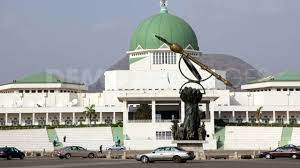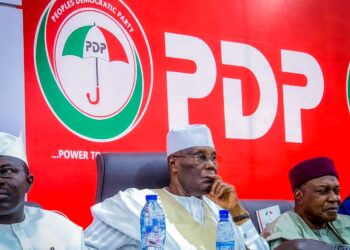Oga Peter walked into the common room and slumped into the expansive three-seater sofa. He didn’t say a word to anybody; quite unlike him. He just buried his face into his palms and stayed like that. We did not quite notice him, for we were busy talking politics rather animatedly, until we heard him take a deep breath and exhale rather noisily as he reclined in the sofa, his face staring the ceiling with a distant glassy look in them.
“Ol’ Soja lafiya kuwa?” one of us enquired if it was all well from our end of the room. Oga Peter had retired from the Nigerian Army in the mid 1990s and since then has been helping out as a catechist at a local parish. He’s popularly called Ol’ Soja. He hails from Adamawa state. When he tried to talk, a treacherous tear snaked its way down his left cheek betraying him in spite of every effort he made to contain it in the eyes. He kept quiet; you could hear the lump in his throat. All four of us knew better than to probe further.
“They have slaughtered my younger brother,” he finally found his voice, “his two sons, and taken away his wife in Mubi,” he said quietly. We immediately understood what had befallen this lively old man and yanked the mirth out of him. When Boko Haram overran and took over Mubi last week, he said, they ordered everyone trapped in not to attempt to escape.
They then “assured” them of safety and protection if they would convert to Islam. Ol’ Soja’s brother and his wife and two sons decided to sneak out of the town but they were not fortunate as they fell into the hands of the insurgents. After scolding them, they asked them to accept Islam but the captives refused, so after telling the three men what the fate of their wife and mother would be, they slaughtered them and made off with the woman.
This is only one out of the many atrocities that have become our lot in this country. Virtually everyone from the North-eastern axis of the nation that one meets has one tale of gloom or the other to tell of their relations living back at home. Many of their homes in safe towns are now bursting at the seams with displaced persons. The insurgents are clearly gaining more grounds.
Only two days ago, news filtered in of how the town of Ashaka in Gombe state, along with its popular Ashaka Cement Company, has fallen into their hands. They are inching deeper and deeper into the hinter and expanding their territory with certainty and confidence.
On that same day, the deputy governor of Borno state, while on a visit to his displaced citizens in Yola, was reported as having said that if efforts are not intensified, in the next three months the entire North-east would surely fall into the hands of the insurrectionists. That is a damning remark.
The curious thing in Nigeria’s engagement of this insurgency is that when it looks as if the armed forces are beginning to have an upper hand, talk about truce or cease-fire pops up, the military seems reigned in a little and then “boom!” the insurgents begin to inflict even more mortal blows on the state again. It happened last year when the state-of-emergency was first declared and it has just happened again. What is happening? The more we see and cry, the less we understand!
We are gradually but surely coasting to a situation whereby, in order to stay alive, many more people are left with no option but to pledge allegiance to the insurgents and in fact join them in arms against the state. Does the Nigerian state really realise this?
Because what we see more is politics and politicking everywhere: the president is withdrawing the security detail of the decampee Speaker of the National Assembly, Tambuwal; PDP governors are digging heels against the president; PDP legislators are using the Tambuwal decamp saga as bargaining chip against the president; Tambuwal himself has recessed the House of Reps that should not be sleeping at this time until his politically convenient December 7… wait a minute, do these guys know that this house is on fire?
Another disappointing dimension in all of these to most Nigerians is the role of the international community. Because of the #bringbackourgirls campaign they, like some pop affair, committed to helping us, at least to return the girls, but “whossai!” Instead, all we get from a country like the US is an embargo on sale of arms to Nigeria in the name of sanction for human rights violations by the military in the North-east: in time of war? With an amorphous enemy?
Let the Nigerian leadership and the international community come out and tell us what they really want for Nigeria. We are no longer sure.



